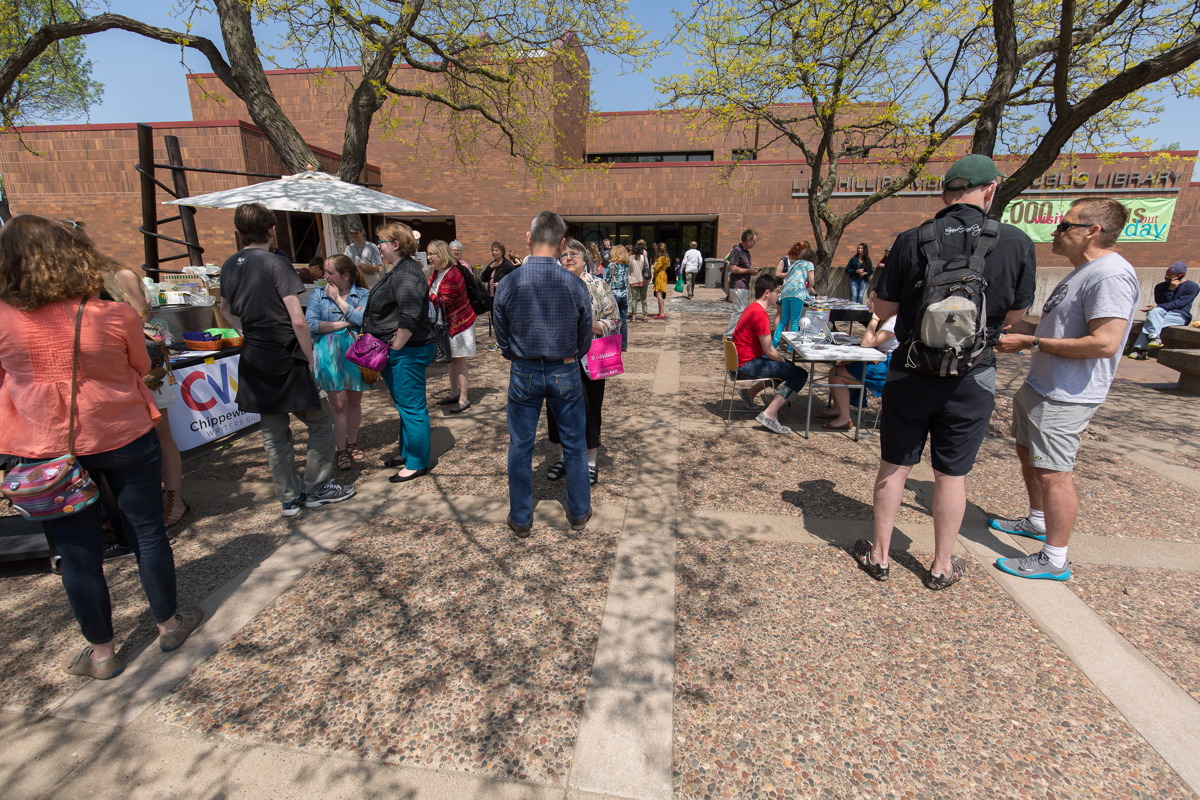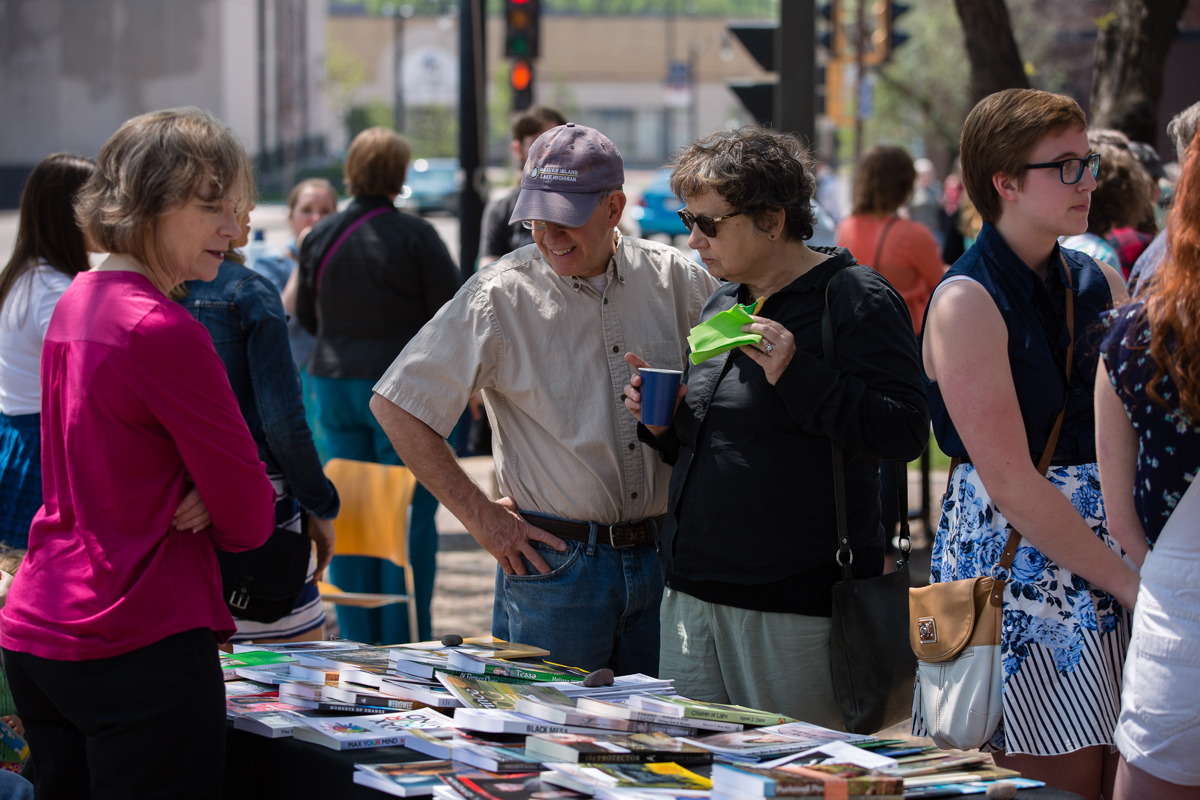Alex Tronson (center)
By Alex Tronson
Dear Past Self,
About a year after you graduate from UW-Eau Claire, you may find that your general willpower to write has begun to slip a bit. It won’t be for lack of time, (trust me, you’ll have plenty of that), but because you’ll be afraid. (Who was it who said there is no such thing as writer’s block, only fear?)
Maybe that sounds silly to you, Past Self, to be afraid of writing. But with time I’m sure you’ll come to understand that it’s a necessary hurdle in any creative process, and you’ll learn to overcome it. Which isn’t to say you won’t be writing at all during this time, but surely not as much as you once did, and surely not as well. Right?
During this time, you’ll remember your writing workshops, and how there was always a consistent source of feedback. You were never more than a few weeks away from finding out what was wrong with your work. Even if you didn’t always agree with your peers, there was still a supportive group of like-minded individuals committed to helping you improve your craft.
But when you graduate, Past Self, it will be intimidating to write on your own. Until you’ve embedded yourself in the literary community, how will you know if your characters are underdeveloped? Or if your narrative is too slowly paced? Or if your dialogue is unrealistic? You will find yourself asking these questions often, creating a disconnect between your ambitions and your execution. You won’t have trouble getting butt-in-the-chair, (again, trust me, you sit a lot) but you will struggle with overcoming the fear of writing a bad story.
All right, Past Self, allow me to pivot for just a moment to inspiration, which you already know we cannot wait for, but have to find for ourselves.
Sometime in the future, you will pinch your jacket shut against the cold (the zipper on our favorite jacket will be broken) and you will go out to see the new Jim Jarmusch film called Paterson.
The film shows a week in the life of Paterson, a bus driver living in New Jersey, with his wife, Laura and their English Bulldog, Marvin. Paterson drives around, eavesdropping on passengers—a pair of lonely construction workers, two anarchistic college students—and when he finds some time, he breaks out the small, moleskin notebook to write poems, though he does not show these to anyone. (This will feel very familiar to you, Past Self, just wait.)
As someone currently struggling with maintaining a proper work ethic, you will find Paterson to be exactly the kick in the pants you need to begin journaling again, which will then fuel your next poems and short stories. The film will reinforce things you once knew to be true, but had forgotten. That writing can serve as a reflection, an interpretation of the little things, the day-to-day moments and adventures that make us feel the most human.
Though maybe, at this moment, a film won’t do the trick for you. Perhaps a trip to the museum is in order, or a good and spontaneous conversation with a stranger or a friend. Perhaps you need only to put on a good record (try Otis Blue) to find some inspiration. But in the future, this film will help you. And though it may not be the classroom full of inspiration you and I are used to, you can rest assured that everything will be all right, because, Past Self, we will learn to write all over again, and that’s going to be just fine, as long as we let it be.
Sincerely,
Your Future Self
P.S. Oh, and you should probably start jogging again.


































